Global Entrepreneurship: How business can help drive social change
Global Entrepreneurship: How Business Can Help Drive Social Change
The Youth Enterprise Health Incubator (YEHI) project, organised by Raleigh International, took place between 3 – 8 November. It saw seven youth-led social enterprises, all of which are aiming to improve the health of their fellow Tanzanians, evaluate how to improve their products or services and further grow their innovative companies.
By bringing together the energy and motivation of young people, with the commercial expertise of business leaders, the potential social impact of enterprises is increased. Through connecting young social entrepreneurs with Novartis business leaders, Raleigh International aims to create sustainable social change. These principles are at the core of Raleigh’s unique corporate Skill Based Volunteering programmes.
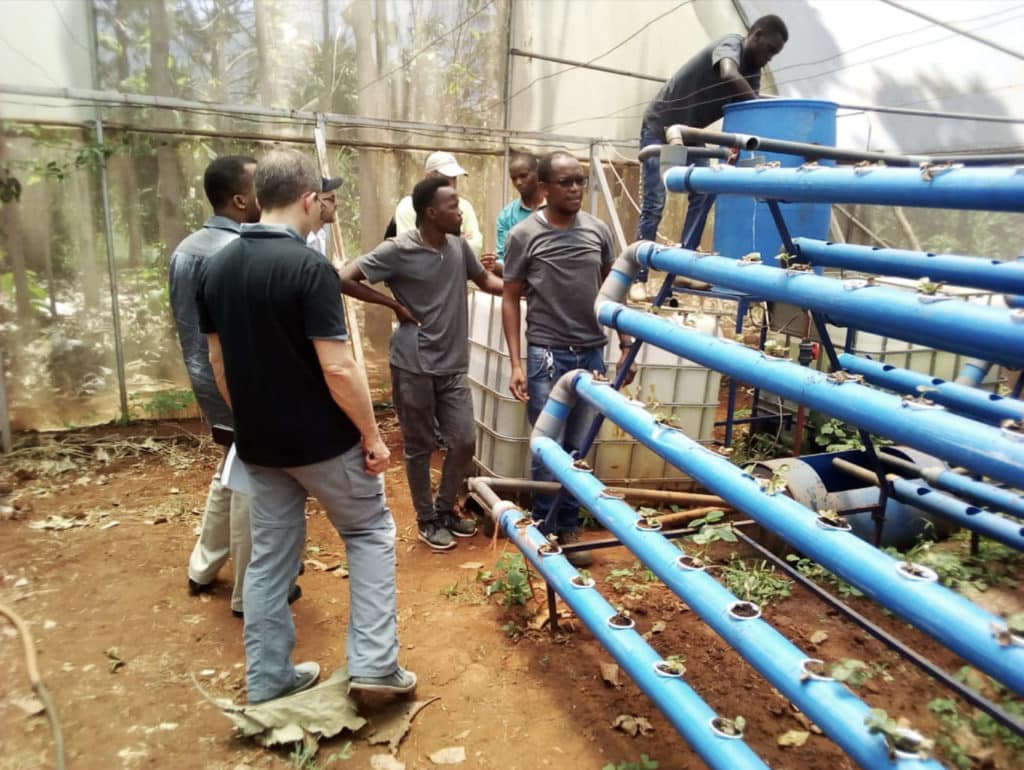
Social enterprise
One enterprise that participated in last week’s programme – and winner of the project’s Best Sustainable Business award – was Orange Fleshed Sweet Potato (OFSP). OFSP is tackling malnutrition across rural Tanzania by selling sweet potato derived products – such as flour and porridge – in the regions of Morogoro, Dar Es Salaam, Dodoma and Arusha.
The social enterprise was set up in 2017 by four young Tanzanian entrepreneurs. They have established a large demand for their products since then by visiting clinics, schools, and exhibitions across Tanzania to raise awareness of Hidden Hunger – a chronic lack of vitamins and minerals that can occur even in people that appear healthy. It is estimated that 34 per cent of Tanzanian children under the age of five suffer from chronic malnutrition and an overwhelming 58 per cent suffer from anaemia, often caused by iron, folic acid and B12 deficiencies (Tanzania Demographic and Health Survey).
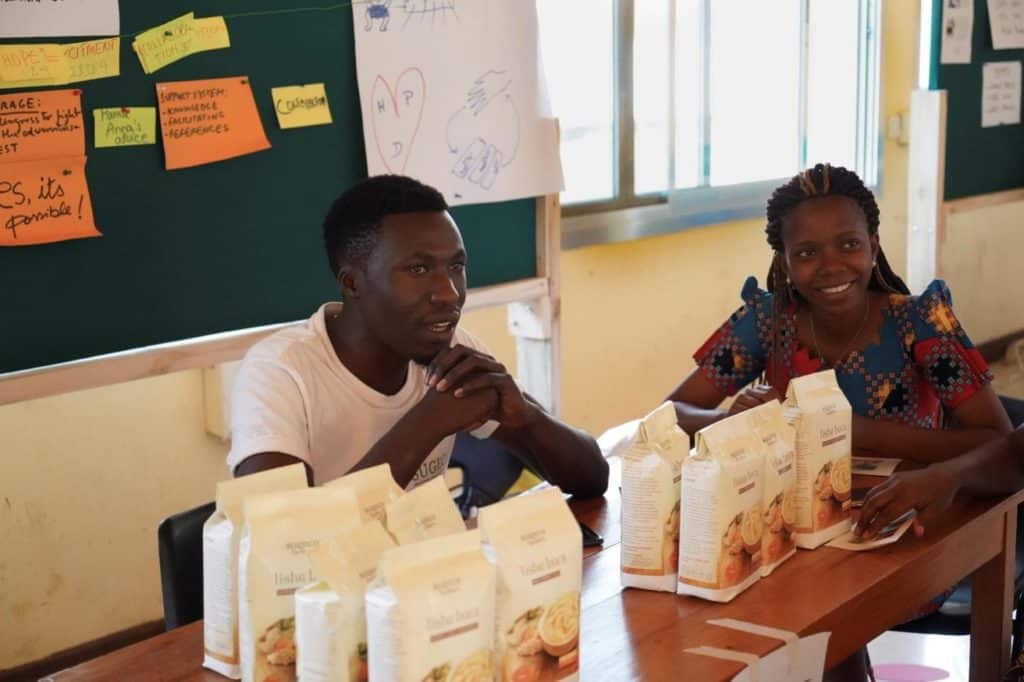
Jolenta Joseph, one of the founding members of OFSP, said that taking part in the YEHI project has helped the team identify how to expand and grow their business.
‘Currently, we are running the mill [to produce flour] every day, and producing more than 200kg of flour per week,’ she said. ‘We have the customers there, but up until now we have just been producing and selling without any long-term or sustainable plan for the future.’
Jolenta added that one of the plans they developed last week was to move out of the incubator they are currently part of, where they share facilities and equipment with several other businesses.
‘The Novartis leaders pushed us to think about the business on its own, not as part of an incubator,’ Jolenta commented. ‘This made us realise that to expand we need to go out of the incubator, and we now have more confidence to do this.’
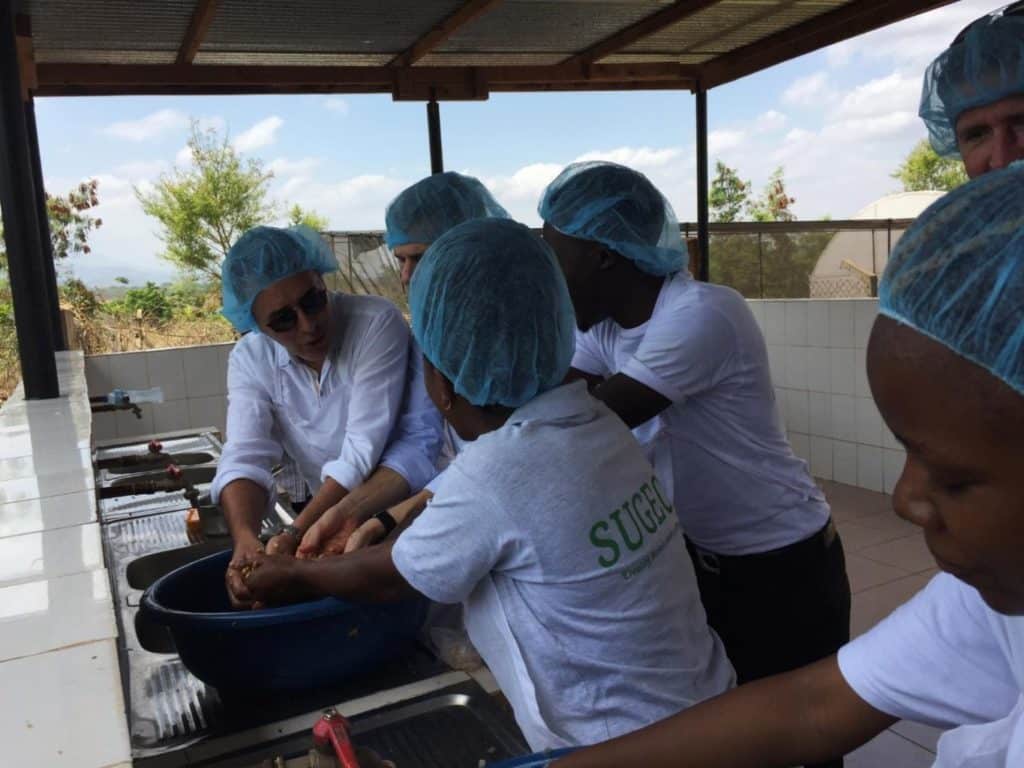
In addition to the Novartis participants, the OFSP team enjoyed the networking and group discussions with other young entrepreneurs, Jolenta noted: ‘When we presented our business model canvas lots of people suggested that in addition to expectant mothers and children, we should target other groups, such as people with albinism, the elderly, or the disabled. We got a lot of information from our peers.’
Growing a business responsibly
Idda Joseph, a young entrepreneur who helped set up the social enterprise LifePackage Solutions (whose product is MaishaPackage), said that a big part of what they learnt from Novartis and GAIA Insights was understanding that it is still possible to expand while maintaining social responsibility.
‘This week has taught us about how we can grow in a way that allows us to keep our social values,’ she said. ‘We don’t just do business, we are tackling social issues too.’
The MaishaPackage aims to improve education around menstrual hygiene management, and to make sanitary products more accessible by providing kits containing pads and informative brochures to girls and young women in schools and public spaces.
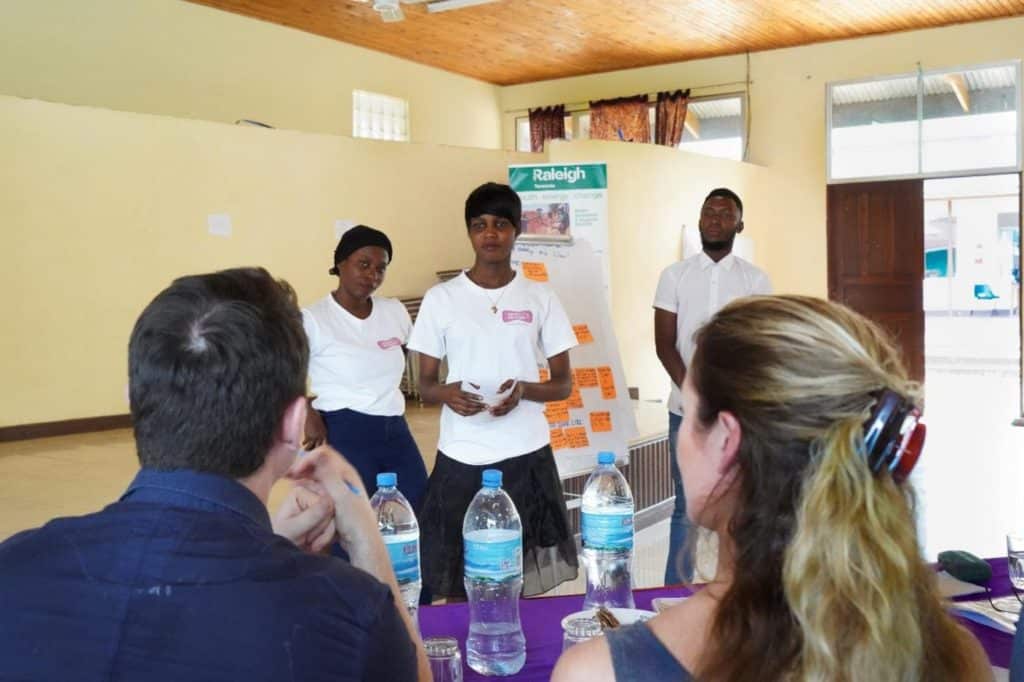
Rather than getting the packaging for the kits from a supplier, LifePackage Solutions will now approach manufacturers directly, which will reduce costs in addition to helping them retain their social responsibility.
‘We learnt that we should look for a manufacturer that supplies us directly in order to bypass the middle man,’ Idda said. ‘We also identified what we should look for in a manufacturer – for example quantity, quality, and most importantly for us, their social values.’
One aspect of the YEHI project involved the youth entrepreneurs and Novartis participants going on field visits to observe the context, meet experts and conduct focus groups to identify innovative ways of developing their enterprises. The LifePackage staff, who visited the Secondary Education for Girls’ Advancement (SEGA) residential girls’ school in Morogoro, found this incredibly useful: ‘We were able to talk with teenage girls who gave us good insights about what else to include in the kits, such as additional information we can add, and how we can reach them in a way where they are uncomfortable to talk about their experiences and give feedback.’
During the week, the LifePackage Solutions team was able to connect with other business participants also dealing with menstrual hygiene management – for example Bela Vendor, which supplies vending machines that dispense low-cost sanitary pads in schools and public places; and Index Labs, who have developed a chatbot (called eShangazi) that works alongside Facebook Messenger to provide education on sexual and reproductive health in an attempt to reduce teenage pregnancy rates.
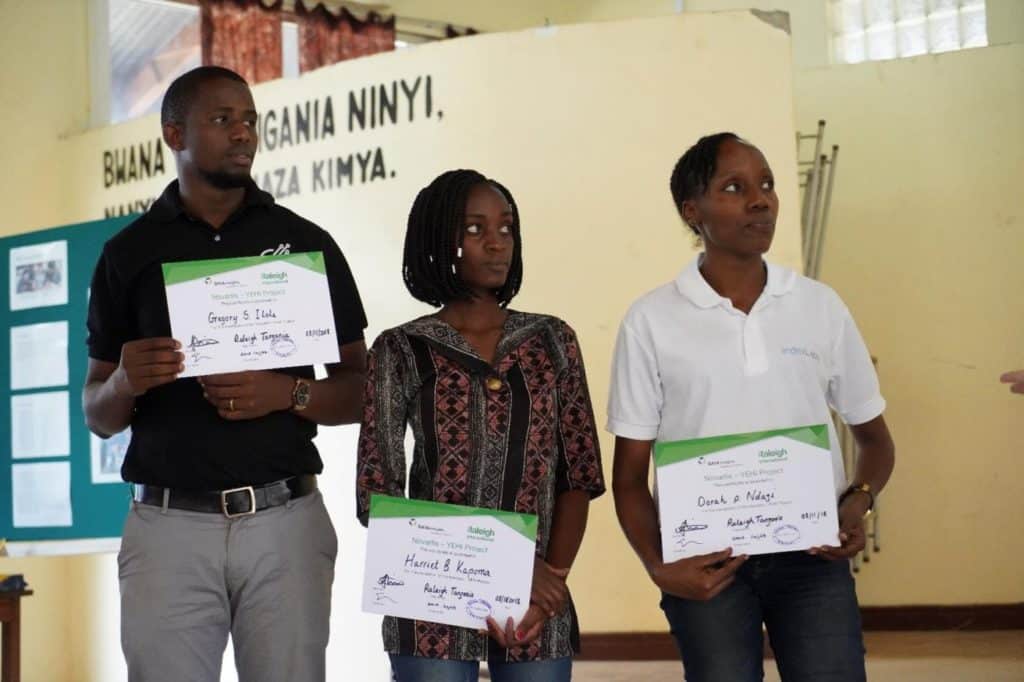
Finding purpose in business
The Novartis leaders that took part in the programme not only provided valuable business insights to the young entrepreneurs but also learnt from the young people they were working with, which they will apply to their roles back home.
One Novartis participant said: ‘The young people I was working with have a deep purpose to make a social impact and a tremendous willingness to make it happen.
‘One thing I’ve thought about is that – back home, working in developed markets, as soon as you find a little adversity you stop and decide quickly that it’s not going to work.
‘But the can-do attitude here is astounding. I believe this will change the way I work, it will make me stronger. I will take what I believe in[…] and fight for it – both in terms of risk taking and sustainability.’
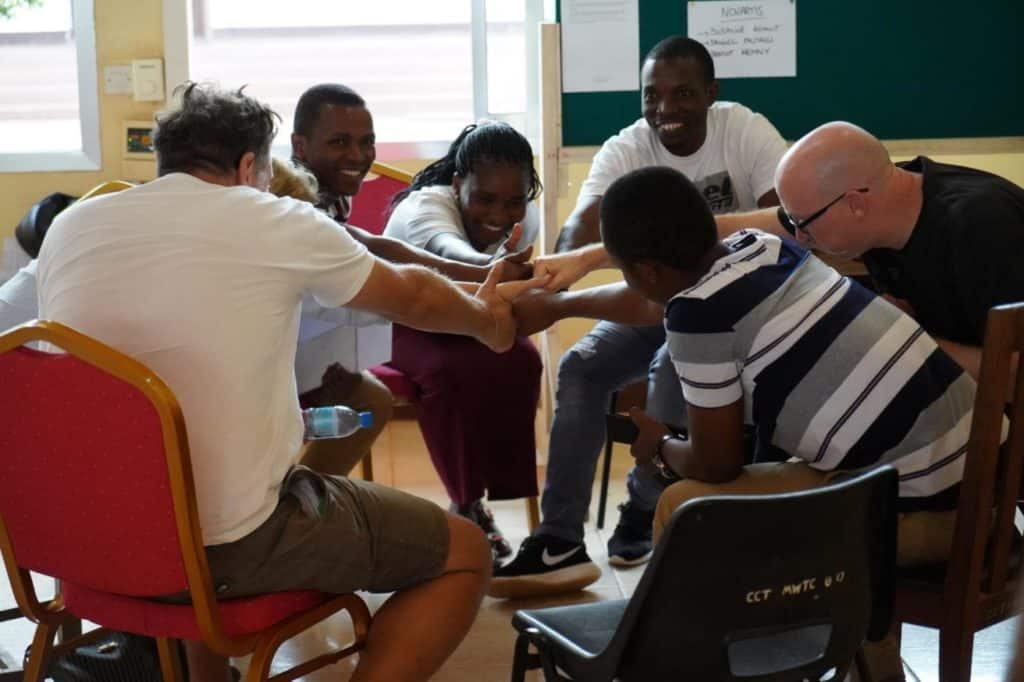
The Novartis participant continued: ‘This week has highlighted the importance of linking business with purpose. You think about your shop, your department, having a purpose behind what you do. This is what I want to achieve and not give up on the vision or the outcome we expect.
‘To make this happen, I believe it’s important to invest both time and money in developing young people.’
—
Follow us on social media to read more about the seven youth-led social enterprises that took part in the YEHI project:
Twitter: @RaleighTanzania
Facebook page: Raleigh Tanzania
Instagram: @Raleigh_tanzania
–
Written by Jessica Rowbury (Communications officer)
Photographs by Thalia Aboutaleb



